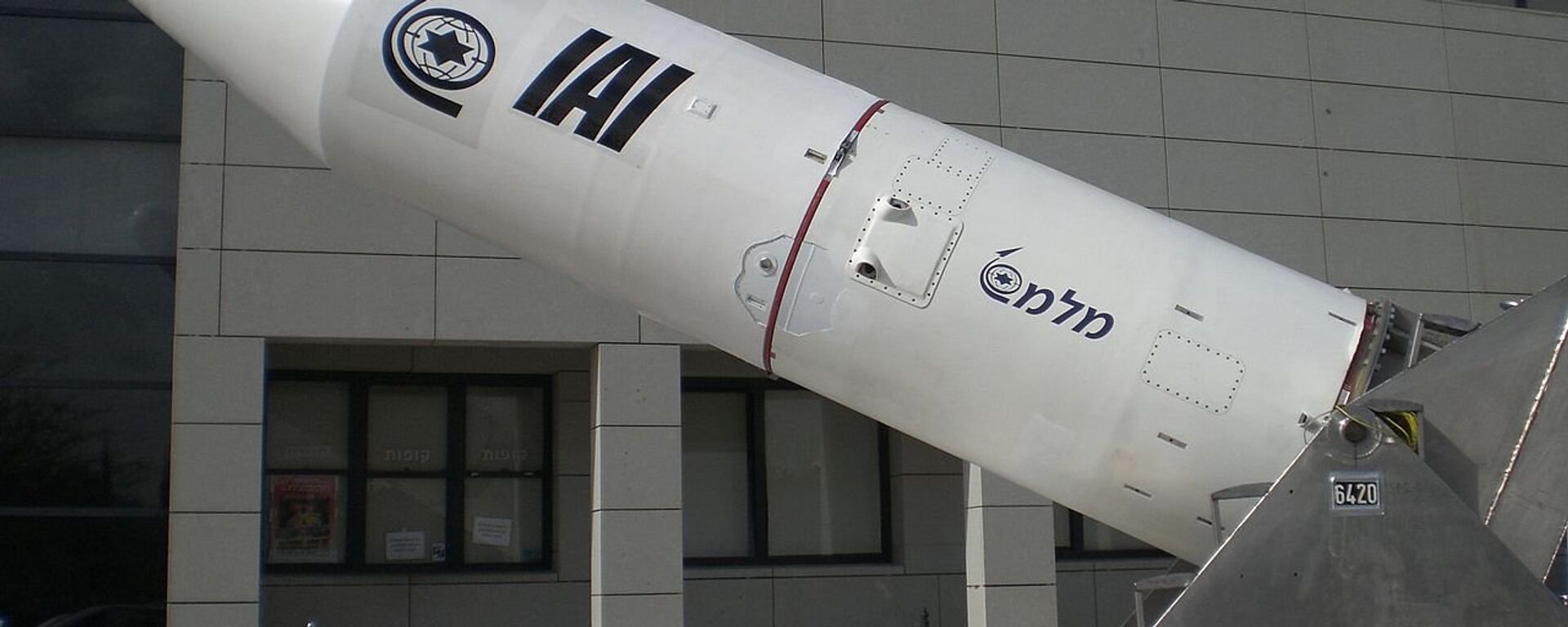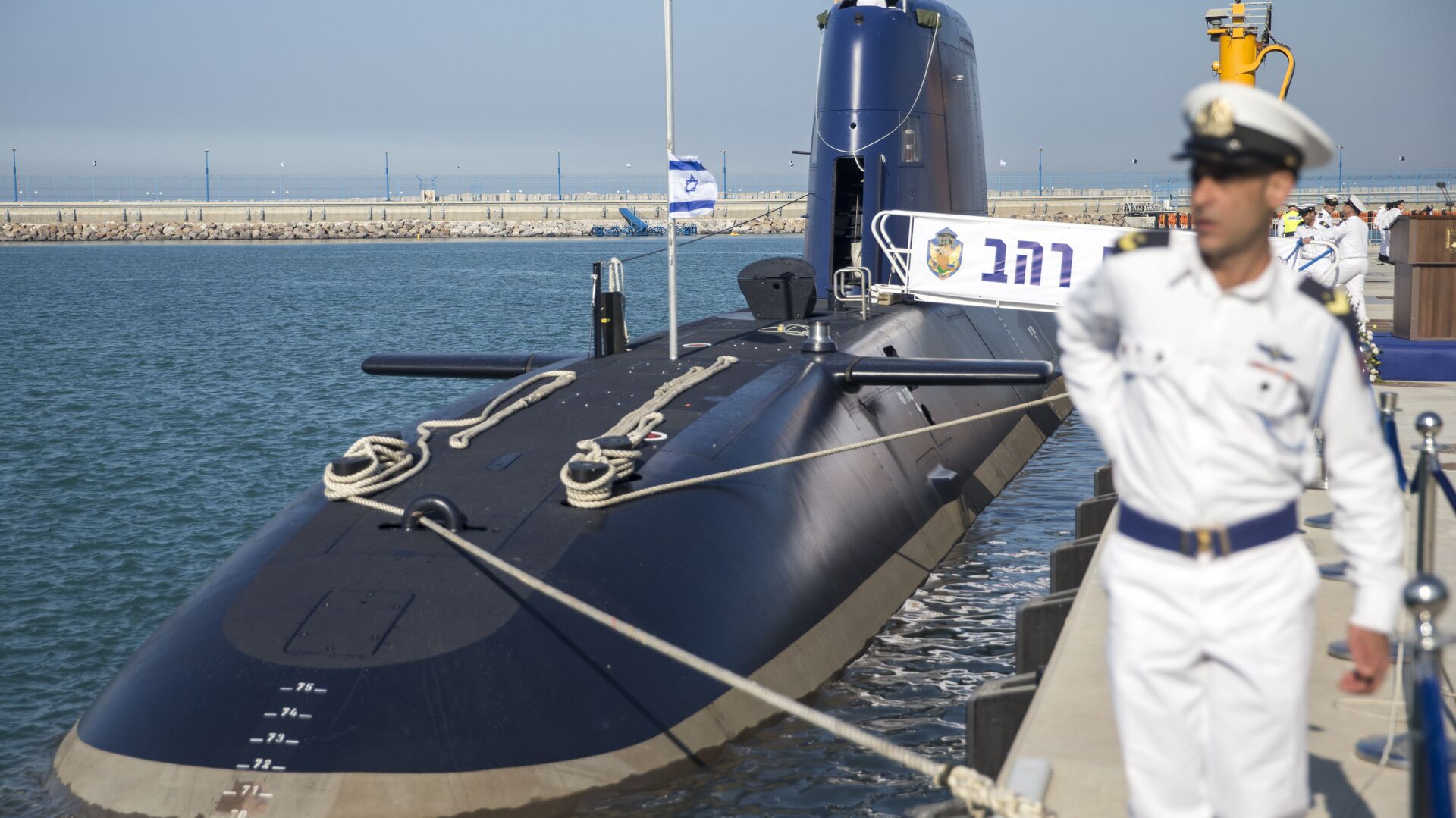https://sputnikglobe.com/20211015/iran-asks-why-israel-allowed-to-run-amok-with-nukes-with-no-international-oversight-1089949977.html
Iran Asks Why Israel Allowed to Run Amok With Nukes With No International Oversight
Iran Asks Why Israel Allowed to Run Amok With Nukes With No International Oversight
Sputnik International
Israel has long accused Iran of pursuing nuclear weapons, and lobbied the US to pull out of a landmark treaty on the issue. The Islamic Republic has dismissed... 15.10.2021, Sputnik International
2021-10-15T12:55+0000
2021-10-15T12:55+0000
2021-10-15T13:22+0000
international atomic energy agency (iaea)
weapons
israel
iran
nuclear
nuclear non-proliferation treaty (npt)
https://cdn1.img.sputnikglobe.com/img/105565/61/1055656195_0:266:4783:2956_1920x0_80_0_0_b7cc777965e1f92ab1f237dbb2706a17.jpg
A senior Iranian diplomat has called out International Atomic Energy Agency (IAEA) director Rafael Grossi over his recent comments in an interview about why the nuclear watchdog obsessively monitors Tehran’s nuclear activities while ignoring those of the Israelis.“How could one see the IAEA as a serious, professional and impartial partner when it does not pursue evenly and justly the implementation of the safeguards regime for all of its members?” the diplomat added.Gharib Abadi accompanied the tweet with a screenshot of an excerpt from Grossi’s 8 October interview with Energy Intelligence, in which he was asked why the IAEA spends so much time focusing on Iran’s nuclear programme while effectively ignoring Israel’s.Grossi explained that there was “a very clear reason” for this: Israel is not a party to the NPT.“I’m not judging if this is good or bad. I hope they would [join the agreement], because I believe in the universality of this treaty, but instead they have a decision not to do that. But when you have a country that doesn’t do that, the degree of inspection that we have is limited to whatever they declare,” the nuclear watchdog agency chief said. “In the case of Iran, Iran, like most countries in the world, is a party to the NPT, and from that legal status you will derive a number of obligations that they have,” Grossi added.The Iranian diplomat’s tenure as ambassador UN organizations in Vienna wraps up on Friday.Iranian officials have repeatedly emphasised that Israel’s suspected nukes, and not Iran’s supposed nuclear weapons ambitions, are the real danger to the Middle East, and have blamed Tel Aviv and Washington for preventing the realisation of an Iranian-proposed treaty on a nuclear weapons-free Middle East.On Tuesday, Heidar Ali Balouji, Iran’s envoy to the UN General Assembly’s first committee on disarmament, accused Israel of defying “all international regimes governing weapons of mass destruction,” including nuclear, chemical and biological weapons, while spreading “false and fabricated accusations” against Iran on its supposed nuclear programme.Also Tuesday, Israeli Prime Minister Naftali Bennett called on the UN Security Council to take action against Iran over its alleged ambitions to build nukes.Israel has spent well over a decade accusing Iran of secretly working on nuclear weapons, and has been accused of carrying out assassination attacks targeting Iranian nuclear scientists, and sabotage attacks against the Islamic Republic’s nuclear facilities. Israel typically neither confirms nor denies its involvement in these crimes. Tel Aviv has also threatened to target any Middle Eastern nation it believes may be pursuing nukes, with this policy known as the ‘Begin Doctrine’, and named after former Israeli prime minister Menachem Begin.Tehran has repeatedly denied that it has any intentions to build nuclear weapons, pointing to its commitments under the NPT and the IAEA safeguards regimes, the Joint Comprehensive Plan of Action nuclear treaty (which Washington unilaterally pulled out of in 2018) as well as prohibitions against the creation of such arms by its supreme leaders on religious grounds.While threatening to make sure that its neighbours don’t create nukes, Israel itself is suspected to have between 90 and 400 nuclear warheads of its own, with these weapons deliverable by submarines, aircraft and ground-launched intercontinental ballistic missiles. Israel neither confirms nor denies its nuclear capabilities in a policy known as ‘deliberate ambiguity’.
https://sputnikglobe.com/20211013/tehran-accuses-tel-aviv-of-spreading-false-fabricated-claims-about-iran-while-stockpiling-nukes-1089885660.html
israel
iran
Sputnik International
feedback@sputniknews.com
+74956456601
MIA „Rossiya Segodnya“
2021
News
en_EN
Sputnik International
feedback@sputniknews.com
+74956456601
MIA „Rossiya Segodnya“
Sputnik International
feedback@sputniknews.com
+74956456601
MIA „Rossiya Segodnya“
international atomic energy agency (iaea), weapons, israel, iran, nuclear, nuclear non-proliferation treaty (npt)
international atomic energy agency (iaea), weapons, israel, iran, nuclear, nuclear non-proliferation treaty (npt)
Iran Asks Why Israel Allowed to Run Amok With Nukes With No International Oversight
12:55 GMT 15.10.2021 (Updated: 13:22 GMT 15.10.2021) Israel has long accused Iran of pursuing nuclear weapons, and lobbied the US to pull out of a landmark treaty on the issue. The Islamic Republic has dismissed claims that its peaceful nuclear programme has any military aspects, and pointed to the Jewish State’s own alleged stockpile of nukes, which Tel Aviv neither confirms nor denies possessing.
A senior Iranian diplomat has called out International Atomic Energy Agency (IAEA) director Rafael Grossi over his recent comments in an interview about why the nuclear watchdog obsessively monitors Tehran’s nuclear activities while ignoring those of the Israelis.
“What is the advantage of being both a [Non-Proliferation Treaty] member and fully implementing the Agency’s safeguards?” Kazem Gharib Abadi, Iran’s outgoing ambassador to United Nations agencies in Vienna, asked in a tweet on Friday.
“How could one see the IAEA as a serious, professional and impartial partner when it does not pursue evenly and justly the implementation of the safeguards regime for all of its members?” the diplomat added.
Gharib Abadi accompanied the tweet with a screenshot of an excerpt from Grossi’s 8 October
interview with Energy Intelligence, in which he was asked why the IAEA spends so much time focusing on Iran’s nuclear programme while effectively ignoring Israel’s.
Grossi explained that there was “a very clear reason” for this: Israel is not a party to the NPT.
“I’m not judging if this is good or bad. I hope they would [join the agreement], because I believe in the universality of this treaty, but instead they have a decision not to do that. But when you have a country that doesn’t do that, the degree of inspection that we have is limited to whatever they declare,” the nuclear watchdog agency chief said.
“In the case of Iran, Iran, like most countries in the world, is a party to the NPT, and from that legal status you will derive a number of obligations that they have,” Grossi added.
In his response, Gharib Abadi suggested that “silence and negligence about Israel’s nuclear programme sends a negative message to the NPT members that ‘being a member equals accepting the robust verifications, while being outside the Treaty means to be free from any obligation and criticism, and even be rewarded?!’”
The Iranian diplomat’s tenure as ambassador UN organizations in Vienna wraps up on Friday.
Iranian officials have repeatedly emphasised that Israel’s suspected nukes, and not Iran’s supposed nuclear weapons ambitions, are the real danger to the Middle East, and have blamed Tel Aviv and Washington for preventing the realisation of an Iranian-proposed treaty on a nuclear weapons-free Middle East.
On Tuesday, Heidar Ali Balouji, Iran’s envoy to the UN General Assembly’s first committee on disarmament,
accused Israel of defying “all international regimes governing weapons of mass destruction,” including nuclear, chemical and biological weapons, while spreading “false and fabricated accusations” against Iran on its supposed nuclear programme.
Also Tuesday, Israeli Prime Minister Naftali Bennett called on the UN Security Council to take action against Iran over its alleged ambitions to build nukes.

13 October 2021, 10:21 GMT
Israel has spent well over a decade accusing Iran of secretly working on nuclear weapons, and has been accused of carrying out assassination attacks targeting Iranian nuclear scientists, and sabotage attacks against the Islamic Republic’s nuclear facilities. Israel typically neither confirms nor denies its involvement in these crimes. Tel Aviv has also threatened to target any Middle Eastern nation it believes may be pursuing nukes, with this policy known as the ‘Begin Doctrine’, and named after former Israeli prime minister Menachem Begin.
Tehran has repeatedly denied that it has any intentions to build nuclear weapons, pointing to its commitments under the NPT and the IAEA safeguards regimes, the Joint Comprehensive Plan of Action nuclear treaty (which Washington unilaterally pulled out of in 2018) as well as prohibitions against the creation of such arms by its supreme leaders on religious grounds.
While threatening to make sure that its neighbours don’t create nukes, Israel itself is suspected to have between 90 and 400 nuclear warheads of its own, with these weapons deliverable by submarines, aircraft and ground-launched intercontinental ballistic missiles. Israel neither confirms nor denies its nuclear capabilities in a policy known as ‘deliberate ambiguity’.


